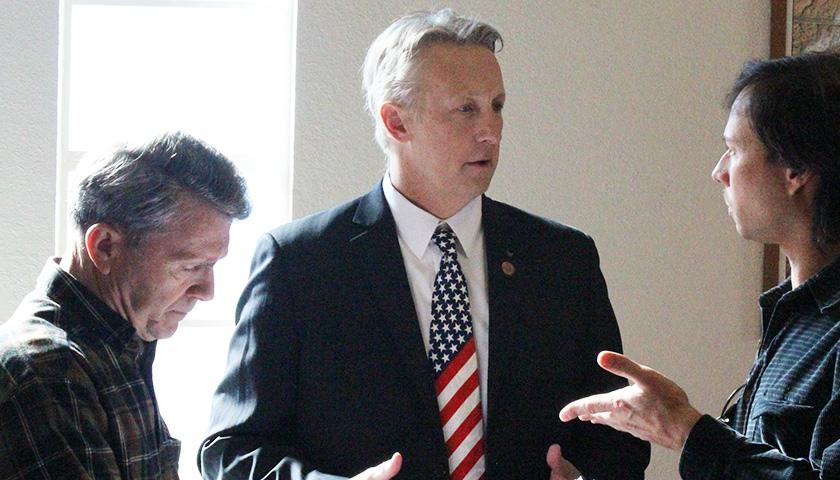Santa Cruz County Judge Thomas Fink denied a request from Arizona Attorney General Kris Mayes to temporarily block the Cochise County Supervisors from delegating election responsibilities to Cochise County Recorder David Stevens. Mayes filed a lawsuit against the supervisors on March 7, alleging the group had no authority to make the agreement earlier this year. However, the Maricopa County Supervisors delegated those responsibilities to the Maricopa County Recorder for years until recently, and Yuma County still does.
In turning down Mayes’ request for an injunction, Fink said the state had not met its burden of showing there was an “unqualified transfer of statutory power.” He said the agreement had provisions to serve as “safeguards that are, in the court’s opinion, sufficient to ensure the board meets authority over the conduct of elections in Cochise County.”
He summarized, “The Board does have the power to delegate at least some election duties to the recorder that are not otherwise specifically authorized by law.”
Timothy La Sota, the supervisors’ outside attorney, told the judge during the hour-long hearing on Tuesday, “If you look at the state’s critique of the agreement, it looks more like what a lawyer would put together for a client when they’re just kind of looking for things to pick out about something they don’t like. ‘I don’t like how this is written,’ ‘I don’t like how that’s written.’”
He said, “The state keeps shifting around for a real theory on this document. The state can take issue with the way the agreement’s written but that’s not a real argument, that’s a lawyer’s critique.”
In pleadings filed before the hearing, La Sota pointed out, “[T]he biggest flaw in the State’s argument is that even though the State pushes for a rushed resolution prior to the May 16, 2023 Cochise County Jail District vote, it ignores the fact that ‘the governing body of any election district authorized to conduct an election may contract with the board of supervisors and county recorder for election services.’”
The decision means Stevens will oversee the next election on May 16, when voters decide whether to create a tax to fund jail construction. Stevens, a former state legislator, supports putting high-tech security features on ballot paper and is a director of election integrity champion Mark Finchem’s Election Fairness Institute. He ran for the recorder on a platform of cleaning up voter rolls, replacing a longtime Democrat.
Until 2019, the Maricopa County Recorder handled voter registration, early voting, election day voting, and tabulation through an elections director who reported to the recorder. An agreement in 2019 revised that, transferring election day voting and tabulation to the Maricopa County Supervisors, and the election director started reporting to them instead.
Joshua Bendor, solicitor general for the Arizona Attorney General’s Office, argued during the hearing that this exact arrangement that Maricopa County had was illegal. “This case is about whether the law allows one man to have near-singlehanded control of elections in Cochise County,” he told the court. “The answer is clearly no.”
Former Elections Director Lisa Marra resigned in January, so the supervisors addressed the void by having Stevens step in to handle the elections until a permanent elections director is found. Marra said she encountered a hostile working environment after she refused to turn over ballots for a full hand count when the supervisors requested them. She took a position as assistant state elections director under Democratic Secretary of State Adrian Fontes.
The supervisors tried to conduct a hand count of last fall’s election. Also, they tried to delay the certification of the results while investigating election irregularities, which angered many election fraud deniers.
– – –
Rachel Alexander is a reporter at The Arizona Sun Times and The Star News Network. Follow Rachel on Twitter. Email tips to [email protected].
Photo “David Stevens” by Davenport41. CC BY-SA 4.0.





